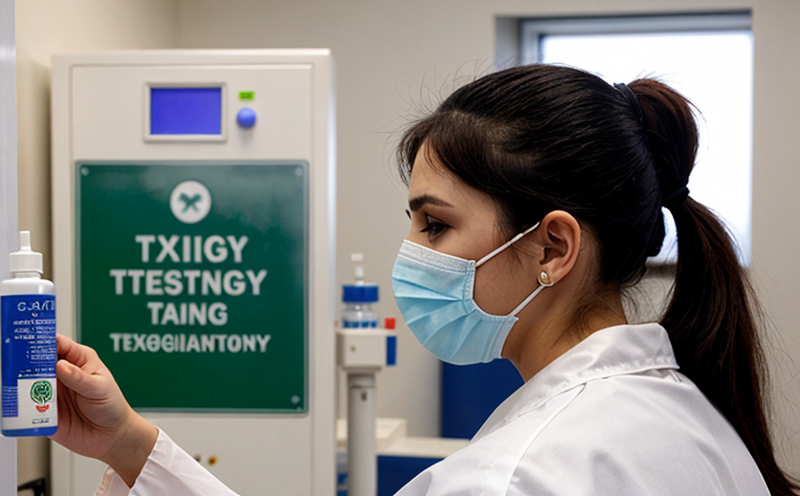Immunotoxicity NK Cell Activity Testing
The Immunotoxicity NK Cell Activity Test is a critical aspect of pharmaceutical testing, particularly in the realm of toxicology and safety pharmacology. This test assesses whether compounds used in drug development can impair natural killer (NK) cell activity. NK cells are a vital part of the innate immune system responsible for recognizing and destroying infected or malignant cells. The integrity of these cells is crucial to maintaining overall health, making their evaluation essential during pharmaceutical product development.
During this test, samples from various stages of drug candidates undergo examination using standardized protocols aligned with international standards such as ISO 18123-1 and EN 356. The process involves multiple steps including cell isolation, labeling, incubation, and assay measurement to determine the extent to which a compound affects NK cells' cytotoxicity.
The test aims to ensure that any potential safety issues related to immune system modulation are identified early in the development phase. This proactive approach helps pharmaceutical companies comply with regulatory requirements while also ensuring product safety for end-users. By identifying toxicological risks at an early stage, it enables researchers and developers to make informed decisions about further stages of drug testing or modifications needed before proceeding into clinical trials.
Standardization is key in this process, as precise methodologies ensure consistency across different laboratories worldwide. Compliance with recognized international standards guarantees that results are comparable and reliable, which builds confidence among stakeholders involved in the regulatory approval process.
| Stage of Development | Purpose |
|---|---|
| Preclinical Research | Evaluation of early-stage compounds for potential immune system interactions. |
| Development Phase | Detection of toxic effects on the innate immune system during formulation optimization. |
Industry Applications
The application of Immunotoxicity NK Cell Activity Testing spans various stages within pharmaceutical research and development. It plays a pivotal role in ensuring that new drug candidates do not interfere with the body’s natural defense mechanisms. This testing is particularly important during preclinical studies where researchers aim to understand how compounds interact with different components of the immune system.
Incorporating this test into early-stage research allows for the identification and mitigation of any potential adverse effects on NK cells before advancing to later phases of development. By incorporating this assessment, pharmaceutical companies can demonstrate their commitment to patient safety throughout all stages of drug discovery and formulation.
International Acceptance and Recognition
The significance of the Immunotoxicity NK Cell Activity Test cannot be overstated. Its acceptance by regulatory bodies worldwide underscores its importance in ensuring that pharmaceutical products meet stringent safety standards before being made available to consumers.
Regulatory authorities such as the U.S. Food and Drug Administration (FDA), European Medicines Agency (EMA), and others have recognized this test's value in assessing drug candidates' impact on immune function. Compliance with these guidelines ensures that pharmaceutical companies adhere to industry best practices, promoting trust among consumers.
International standards like ISO 18123-1 provide a framework for consistent testing procedures across borders, facilitating smoother collaboration between researchers and healthcare providers globally. Adherence to such norms enhances the reliability of test results, supporting more accurate assessments during drug evaluation processes.
Use Cases and Application Examples
| Case Study | Description |
|---|---|
| Evaluation of New Biopharmaceuticals | This case involves assessing newly developed biologics to ensure they don't disrupt the balance of NK cell activity. |
| Formulation Optimization | Determining how changes in formulation might affect immune responses, especially during late-stage product refinement. |
Incorporating Immunotoxicity NK Cell Activity Testing into the development pipeline offers several advantages. For instance, it allows for proactive identification of potential issues early on, reducing costly delays later in the process. Additionally, by aligning with international standards and recognized practices, companies can enhance their reputation within the industry.
Real-world examples demonstrate its effectiveness. One notable case involved a biotech company that integrated this testing into its pipeline strategy. The result was not only faster development timelines but also higher confidence levels regarding product safety.





